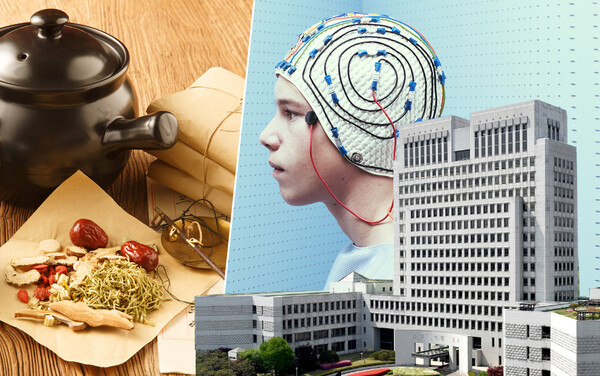
The Supreme Court on Tuesday upheld a lower court ruling that allowed an Oriental medicine practitioner to use electroencephalography (EEG), a modern medical device. The ruling is expected to cause an intense backlash from Western medical practitioners.
On Friday, the Supreme Court Division 1 confirmed the appeals court’s ruling that the use of an EEG device by an Oriental medicine practitioner was “not an act outside the scope of his license.”
The doctor, who runs an Oriental medicine clinic in Seocho-gu, southern Seoul, published an advertisement in a newspaper in 2010 claiming to diagnose dementia and Parkinson's disease using an EEG device and treat them with herbal medicine.
EEG is used to diagnose brain tumors and epilepsy by detecting brain waves generated in the cerebral cortex.
In 2011, the head of the Seocho-gu public health center suspended the Oriental medicine practitioner for three months for practicing Western medicine outside the scope of his license.
The Ministry of Health and Welfare also imposed a three-month suspension in 2012, and the doctor filed a lawsuit against the government.
The court of the first trial sided with the health and welfare ministry. It determined that the doctor’s use of an EEG device to diagnose Parkinson's disease and dementia constituted "unlicensed medical practice" outside the scope of his authorized practice of Oriental medicine.
"The Oriental medicine doctor’s diagnosis using an EEG device cannot be considered as an act based on traditional Oriental medicine knowledge, and if he does not properly understand the recordings on the EEG, there is a high risk of human life and physical injury," the first trial court said. "It is also difficult to see that Western medicine physicians and Oriental medicine practitioners receive equal education regarding EEG devices."
However, the appeals court overturned the decision. The appellate panel partially ruled in favor of the plaintiff, stating that "the use of EEGs does not require special clinical experience, does not pose significant risks, and does not require specialized knowledge or skills in Western medicine."
Finally, a panel of the Supreme Court also affirmed the appeals court's ruling.
Earlier in December, the Supreme Court allowed an Oriental medicine doctor to use an ultrasound device, stating that the act cannot be considered a violation of the Medical Service Act.
The Supreme Court sent the case back to the Seoul Central District Court with a not-guilty verdict against the doctor, who was charged with violating the Medical Service Act.
The court said, "It is difficult to believe that the possibility of harm to health and hygiene (due to the doctor's use of an ultrasound device) has been proven."
The Korean Medical Association, a group of about 130,000 physicians, has been waging an all-out war to prevent the use of diagnostic devices by Oriental medicine doctors.
The group submitted a petition of 12,000 doctors, including that of its president Lee Pil-soo, to the court on July 31.

